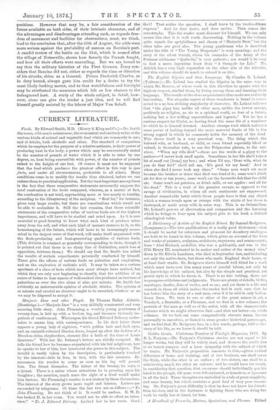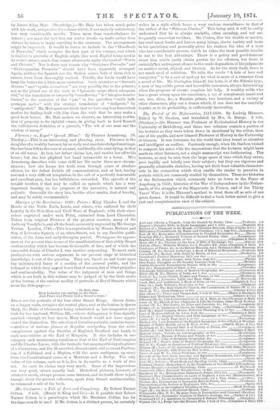A Handbook of Proverbs, Mottoes, Quotations, and Phrases. Edited by
James Allan Main (Routledge.)--31r. Muir has taken much pains with his work, and produced a volume which, if not entirely satisfactory, has very considerable merits. Those more than counterbalance its defects ; nor must the fact that our notice dwells on faults rather than -virtues be taken to imply anything to the contrary. The arrangement might be improved. It would be better to include in the "Handbook of Proverbs," which occupies the first part of the volume, and which is limited to proverbs of English origin (the word English being used in its widest sense), much that comes afterwards under the head of "Words and Phrases." Nor is there any reason why "Scripture Proverbs "and
Shakespearian Proverbs" should have been separately arranged. Again, neither the Spanish nor the Italian mines, both of them rich to excess, have been thoroughly worked. Finally, the Latin would have been the better for a little more correction. Such mistakes as "docendo dicimus" and epulis accumbrere " are very possibly due to the printer; not so the plural use of the verb in " Ignoscito saope altori, nunquam tibi," or the translation of integros by "overflowing " in " integros haurire fontes," or the omission of the "quo" in the quotation rudis indi- gestaquo moles" with the strange translation of " indigosta" by "undigested." Mr. Mak must not think that we have any less benevolent motive for finding fault with him than the wish that he may make a good book bettor. Mr. 3lair makes, we observe, an interesting restitu- tion of property to its rightful owner, in giving back to Lord Russell the well-known definition of a yroverb, "The wit of one man and the wisdom of many."



































 Previous page
Previous page